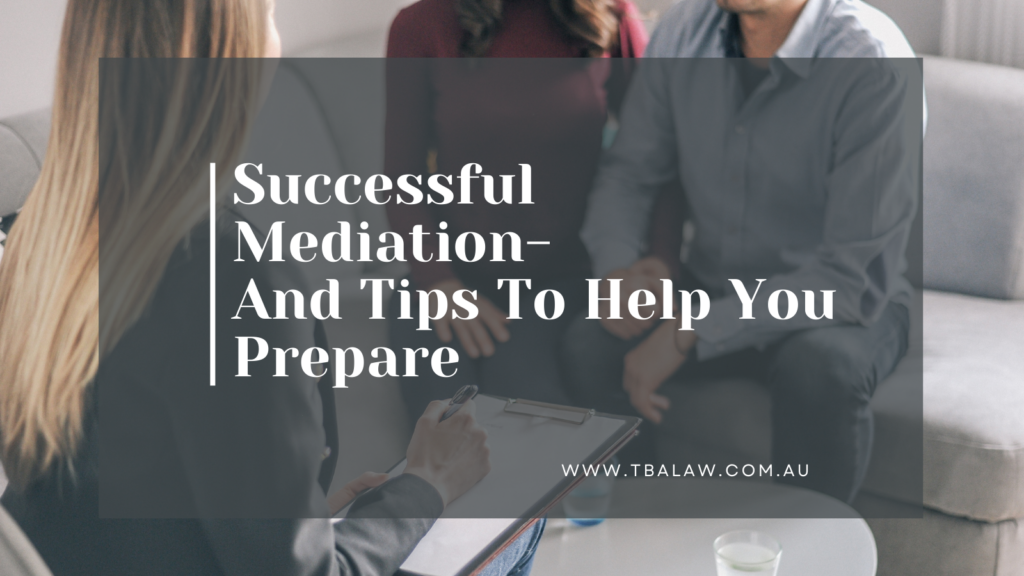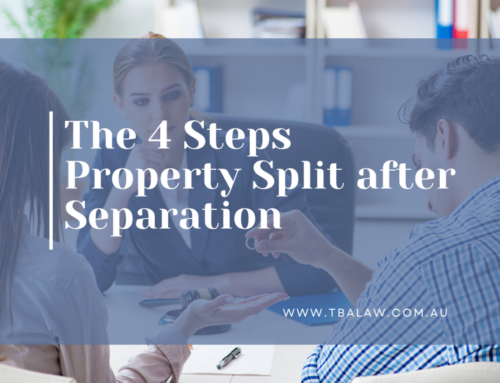Successful Mediation- And Tips To Help You Prepare
by Ivy Casquejo
First, you might ask yourself why do you need mediation? What is the point of it all?
We, as humans, have a tendency to be too emotional and too logical especially when there’s a dispute in the relationship. That’s why mediation is encouraged. Mediation is actually a process where people who are separating or divorcing can resolve their family disputes without going into court.
It’s always an option to narrow down the issues and clarify all possible issues that we have in a relationship. It’s more practical, it’s more informal, it’s more amicable, and it’s more cost-effective for both parties involved.

How do we prepare for mediation?
Here are five tips to consider when preparing for mediation.
The first one would be to identify all the issues that you want to resolve during mediation.
It is important to clear your mind of what are the issues you want to resolve, as well as making a list of concerns that your ex-partner or former partner may want resolved during the mediation process. In this way, you can consider the factors that may prevent agreement and assess the options you have available during mediation.
The second practical tip would be to outline your own resolution.
A mediator can help clarify and reduce the issues as you work towards a mutually agreeable solution. You can also outline your resolution–how do you want the issues to be resolved? Why do you want the issues to be resolved? Think about what you want to achieve during mediation, whether it’s for the best interest of the children or perhaps moving on with a financial settlement.
The third practical tip is to make sure your documents are in order.
If you’re claiming a financial settlement or any other kind of entitlement, make sure you’ve got all the relevant documentation with you. This will be important when it comes to property division.
The fourth one is to listen, then talk.
Listen carefully and actively–that’s the thing. It’s a major thing in mediation. Listen actively and carefully, and talk clearly and confidently about what you want to resolve rather than focusing on this list as the other party does. Focus on the problem and practical solution that you want to resolve rather than focusing on your ex-partner or focusing on your ex-partner’s issues or focusing on the past or anything like that. There are times when we may need to compromise–so it’s also good to communicate what are your negotiables as well as your non-negotiables.
The fifth one would be to consider your options, be open to suggestions and remember that mediation is your chance to get an outcome that is tailored to your needs.
So it’s worth asking whether your options are realistic, or equitable or best for everyone involved?
Remember that mediation is a chance to save yourself time and money, as well as emotional stress. Be open to any possible suggestions or solutions in here so that you can approach the mediation process in good faith. A bonus tip would be to negotiate with your ex-partner before the mediation session begins because it will help both of you make a good decision sooner rather than later.
If you do decide to go ahead with mediation, it’s worth getting some legal advice as early as possible so that you know how mediation works and what your position is going into it. Our team at TBA law can help with this. Get in touch with us at admin@tbalaw.com.au or call 1300 043 103.






Leave A Comment